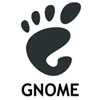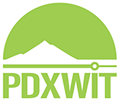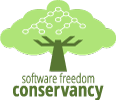Data Driven sessions
First, we need to know how to deal with massive amounts of data. Then we have to put it to use with techniques like streaming and edge computing to create fast, reactive, resilient applications for all types of customers.
1:30pm–5:00pm Monday, July 15, 2019
 Jamiel Sheikh (Chainhaus)
Jamiel Sheikh (Chainhaus)
Average rating:





(4.21, 14 ratings)
Jamiel Sheikh walks you through building an Ethereum decentralized application (DApp) using Solidity. You'll learn some basic Solidity syntax, how to send ether to a smart contract, how gas works, how to programmatically compile and deploy Solidity code, and how to invoke a smart contract from Remix.
Read more.
9:00am–12:30pm Tuesday, July 16, 2019
 Tim Berglund (Confluent),
Brandon Bird (Confluent)
Tim Berglund (Confluent),
Brandon Bird (Confluent)
Average rating:





(4.54, 13 ratings)
Join Tim Berglund to learn how to produce and consume a Kafka topic, integrate Kafka with a database using Kafka Connect, and perform real-time stream processing on Kafka data.
Read more.
11:00am–11:40am Wednesday, July 17, 2019
 Grishma Jena (IBM)
Grishma Jena (IBM)
Average rating:





(4.25, 12 ratings)
Today’s world generates different kinds of data at unbelievably rapid rates. Grishma Jena explains data science, the data science pipeline, and algorithms using real-life examples.
Read more.
11:50am–12:30pm Wednesday, July 17, 2019
 Brian Behlendorf (Hyperledger)
Brian Behlendorf (Hyperledger)
Average rating:





(5.00, 2 ratings)
Blockchain is now established as a valid technology to be used across enterprise applications. Brian Behlendorf discusses what he sees as the next stage of maturation for the tech—professionalization. Join in to explore standards, certifications, and training options for developers, blockchain as a service solutions, and how to avoid vendor lock-in.
Read more.
11:50am–12:30pm Wednesday, July 17, 2019
Average rating:





(4.60, 5 ratings)
Fires caused by electric grid failures are increasing at an alarming rate. Michael Enescu and Peter Enescu examine how the energy adaptive networks technology built on open source and used to monitor and control power grids forms a planetary skin that can be used to predict and avoid such disasters as the Napa and Paradise Fires.
Read more.
1:45pm–2:25pm Wednesday, July 17, 2019
 Christophe Pettus (PostgreSQL Experts, Inc.)
Christophe Pettus (PostgreSQL Experts, Inc.)
Average rating:





(4.91, 11 ratings)
Applications from social media to healthcare to media are increasingly focused on humans and their relationships. But people do not lend themselves easily to being reduced to small slots. Christophe Pettus draws on his experience in data modeling and application design to examine how to successfully approach modeling humans and their relationships and legal compliance issues in a GDPR world.
Read more.
2:35pm–3:15pm Wednesday, July 17, 2019
 Herman Smith (ixo)
Herman Smith (ixo)
Average rating:





(5.00, 3 ratings)
ixo is the blockchain for impact, helping individuals and organizations around the world to achieve the UN Sustainable Development Goals by 2030. Herman Smith dives into how ixo can help you count what matters and value what counts using new Web 3.0 protocols and the ixo blockchain.
Read more.
2:35pm–3:15pm Wednesday, July 17, 2019
 Bas Geerdink (Aizonic)
Bas Geerdink (Aizonic)
Average rating:





(4.50, 2 ratings)
Streaming analytics is a popular subject in enterprise organizations because customers want real-time experiences, such as notifications and advice based on online behavior and other users’ actions. Bas Geerdink details an open source reference solution for streaming analytics that covers many use cases that follow a "pipes and filters" pattern, built with Scala, Flink, Kafka, and Cassandra.
Read more.
4:15pm–4:55pm Wednesday, July 17, 2019
 Wenbo Zhu (Google)
Wenbo Zhu (Google)
Average rating:





(2.67, 9 ratings)
When designing APIs such as the new GCP Firestore real-time database and Google Assistant, how did Google decide which trade-offs to make? Wenbo Zhu dives deep into the challenges faced while deploying a real-time streaming API designed for clients from data centers to the internet and details the trade-offs API developers need be aware of when designing such an API.
Read more.
4:15pm–4:55pm Wednesday, July 17, 2019
 Erin Vincent (Erin Vincent)
Erin Vincent (Erin Vincent)
Average rating:





(4.43, 7 ratings)
E. coli. Salmonella. Listeria. Last year saw several major outbreaks of foodborne illnesses. Tracing the source of contamination took days, even months; we should have the technology to do better. Using the 2018 outbreaks of E. coli in romaine lettuce as a case study, Erin Vincent examines blockchain technology, explains how it works, and compares types of blockchains and their use cases.
Read more.
5:05pm–5:45pm Wednesday, July 17, 2019
 Horea Porutiu (IBM)
Horea Porutiu (IBM)
Average rating:





(4.40, 5 ratings)
If you've ever wanted to get into blockchain development but haven't found a good place to start, you're in the right place. Horea Porutiu walks you through the basics of the Hyperledger Fabric platform by building a simple blockchain application and analyzing the main components required to run a blockchain network.
Read more.
5:05pm–5:45pm Wednesday, July 17, 2019
 Shradha Ambekar (Intuit)
Shradha Ambekar (Intuit)
Average rating:





(4.50, 2 ratings)
Cassandra is one of the most popular datastores in big data and ML applications. Data analysis at scale with fast query response is critical for business needs, and while Cassandra with Spark integration allows running an analytical workload, it can be slow. Shradha Ambekar dives into the challenges faced at Intuit and the solutions her team implemented to improve performance by 100x.
Read more.
11:00am–11:40am Thursday, July 18, 2019
 Amy Hodler (Neo4j),
William Lyon (Neo4j)
Amy Hodler (Neo4j),
William Lyon (Neo4j)
Average rating:





(4.70, 10 ratings)
Graphs provide a method to store and analyze the relationships within the data. Algorithms deepen our understanding of data through aggregation and perspectives to help developers make valuable business decisions for the future based on existing scenarios. Amy Hodler and Mark Needham lead you through a crash course in how to use graph algorithms as part of your big data toolkit.
Read more.
11:50am–12:30pm Thursday, July 18, 2019
 Matt Schallert (Chronosphere)
Matt Schallert (Chronosphere)
Average rating:





(3.00, 5 ratings)
Managing large stateful applications is tough. Matt Schallert outlines the challenges of automating stateful systems at scale and details how embracing a declarative approach can ease operation and automation of these systems on orchestrators such as Kubernetes. He then demonstrates how to apply this methodology to different types of stateful workloads.
Read more.
1:45pm–2:25pm Thursday, July 18, 2019
 Jiaqi Liu (University of Chicago, CTDS)
Jiaqi Liu (University of Chicago, CTDS)
Average rating:





(4.33, 3 ratings)
Data-intensive applications, with many layers of transformations and movement from different data sources, can often be challenging to maintain and iterate even after they are initially built and validated. Jiaqi Liu explores how to factor in monitoring, alerting, and tracing data lineage when building data applications that move and transform data across multiple dependencies.
Read more.
2:35pm–3:15pm Thursday, July 18, 2019
 Alex Silva (Pluralsight)
Alex Silva (Pluralsight)
Average rating:





(3.67, 3 ratings)
Alex Silva outlines lessons learned, common pitfalls, and design traps when designing your streaming data infrastructure, and he shares 21 best practices and standards used at Pluralsight.
Read more.
4:15pm–4:55pm Thursday, July 18, 2019
 Vicențiu Ciorbaru (MariaDB Foundation)
Vicențiu Ciorbaru (MariaDB Foundation)
Average rating:





(5.00, 1 rating)
With so many moving parts, it's hard for the average database administrator (DBA) or database developer to come up with a good explanation for why the optimizer chooses certain query plans. Vicențiu Ciorbaru dives deep into how a modern database query optimizer works to optimize your queries and how you can help it work for you.
Read more.
Premier Diamond Sponsor
Diamond Sponsors
Platinum Sponsor
Gold Sponsors
Silver Sponsors
Supporting Sponsors
Premier Exhibitors
Exhibitors
Innovators
Non-Profit Exhibitors
Diversity and Inclusion Sponsors
Sponsorship Opportunities
For exhibition and sponsorship opportunities, email oscon@oreilly.com
Partner Opportunities
For information on trade opportunities with O'Reilly conferences, email partners@oreilly.com
Contact Us
View a complete list of OSCON contacts
©2019, O'Reilly Media, Inc. • (800) 889-8969 or (707) 827-7019 • Monday-Friday 7:30am-5pm PT • All trademarks and registered trademarks appearing on oreilly.com are the property of their respective owners. • confreg@oreilly.com


































